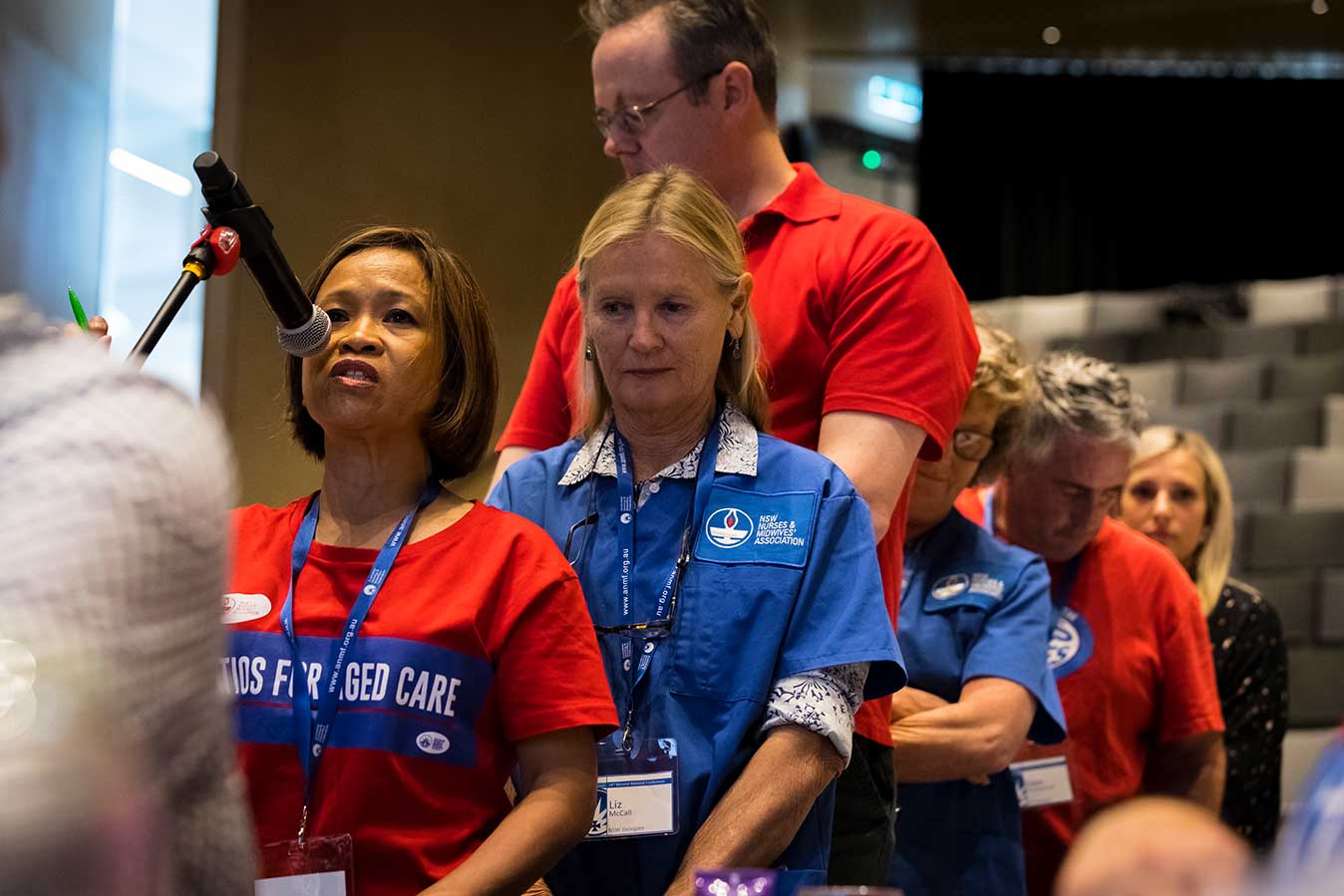Australian Nursing and Midwifery Federation (ANMF) members working in aged care have shared their experiences grappling with longstanding issues plaguing the sector, headed by chronic understaffing, to help highlight the need for urgent reform ahead of the release of the Aged Care Royal Commission’s final report tomorrow.
The ANMF has been calling on the Federal Government to take action on unsafe staffing and inadequate skills mix for several years through its ratios for aged care campaign.
The union has put forward five key recommendations it says the Federal Government must adopt to fix the crisis in aged care.
- Mandated staffing ratios – minimum staffing levels and skills mix
- Legislated requirements for clinical governance, leadership and expertise
- Legislated transparency and accountability measures
- Guaranteeing workforce capacity and capability
- Regulation for unregulated care workers
If adopted by the Federal Government, the ANMF says the recommendations will help deliver a world-class aged care system that provides safe, effective, respectful and dignified care to elderly Australians.
Earlier this week, ANMF members working in aged care shed light on the shortcomings throughout the sector and championed the urgent need for reform.
NSWNMA member Jocelyn Hoffman, an RN with decades of experience working in aged care, spoke about the “corrosive” effects of the Aged Care Act 1997 and the need for mandated ratios and a skills mix that recognises the importance of nursing staff.
“When there’s no RN, who assesses the resident for a probable fracture of the hip or a head injury after a fall? … Who dresses the wound delicately when a skin flap is still present? Who monitors their neurological status?”
“I strongly believe that nurses must be working on the floor as part of the team; I worry about facilities without nurses on the floor 24/7 because a resident’s condition can deteriorate rapidly.”
ANMF (Tasmanian Branch) member Irene McInerney, an RN, reflected on the overwhelming workloads nurses face in residential aged care facilities and the personal toll it can take on a nurse.
“We can’t have eyes in the back of our head when there’s one registered nurse to 100 residents at night,” Irene said, conceding that she herself has had to take steps to address her own mental health due to the demands of her workplace.
Irene suggested many family members take up the burden of care themselves due to fears about the aged care system’s shortcomings.
“We’ve got to look after all of these significant others that are in the community too, trying to keep their loved one at home, because they feel they still might have a better chance of getting their needs met than in the [residential aged care] homes where we’re already full on.”
Sharon Lawrence, a SA-based EN who has spent 34 years working in the aged care sector, highlighted the importance of the EN role in relation to that of the RN, and the burden RNs carry as a result of an unregulated sector.
“In nursing homes without the ENs to assist and support the RNs, the RNs don’t have enough time to properly care for the residents, when their time is being split over more than 90 residents,” Sharon explained.
“The residents’ care is being rushed because the carers have more residents and less time to attend to them; unregulated carers are giving medications to our elderly without being responsible to any agency for mistakes being made.
“The RNs are being held responsible and accountable for the carers and their actions, even if the carers don’t tell them what they’ve been doing.”
With the Aged Care Royal Commission set to hand down its final report tomorrow, the ANMF is calling on the Federal Government to adopt its recommendations and take action to improve the quality of life for Australia’s vulnerable elderly population who rely on the sector.
“But this will need the unwavering and ongoing commitment from the Government, Opposition and all political parties, for the sake of elderly Australians and their families,” the ANMF added.
More information on the ANMF’s campaign for ratios can be found here, while details of its engagement with the Royal Commission into Aged Care Quality and Safety can be found here.








